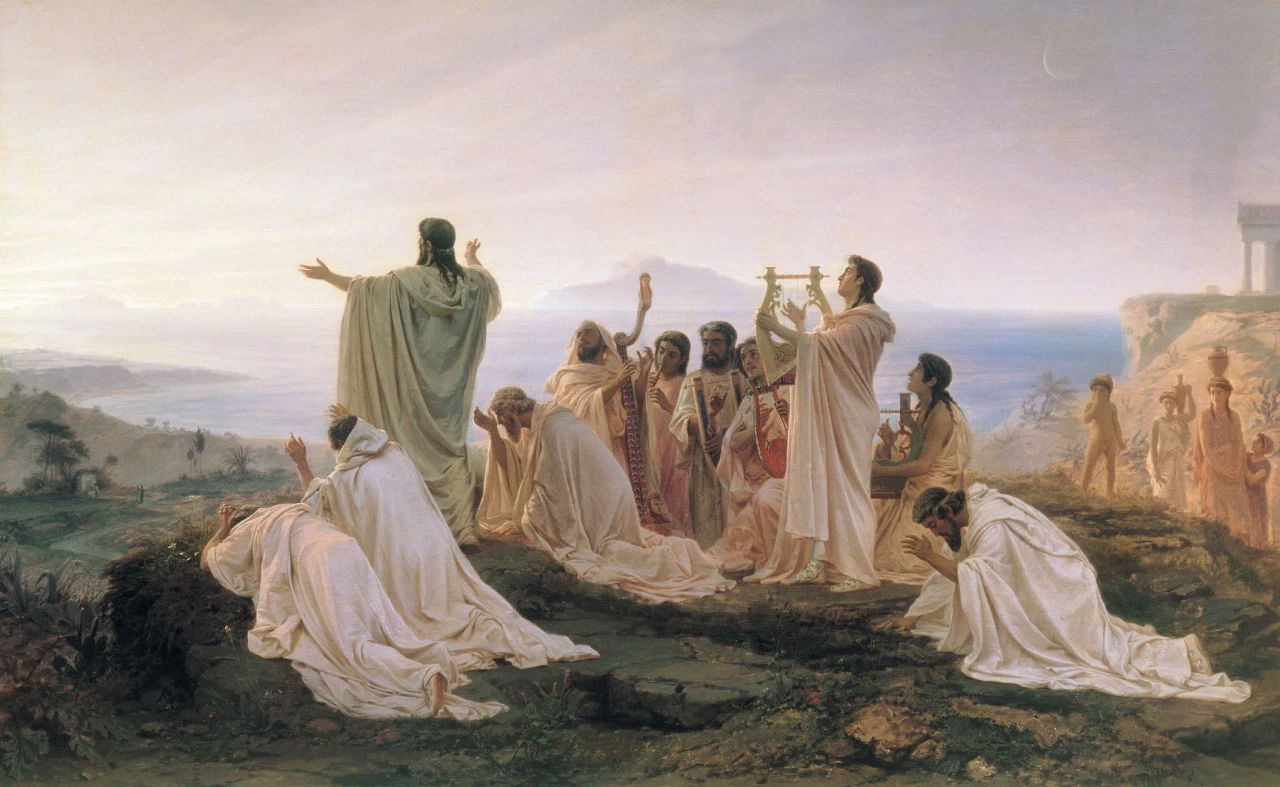
Everybody has a way of looking at the world: the ideas and emotions that shape it, the experiences that give it form. For most, this is characterised by division; by the individual who is separate from others, and objects. Such a perspective develops at an early age, when the child learns they are an “I”, an “ego” if you will. Nevertheless, this is not the only way, and I will explain through Plotinus, who lived between 205 and 270 CE.
Plotinus and the One
Some background to help us understand: Plotinus was a follower of Plato, but he was more than this. He believed that plurality, the many things that exist, cannot be first; instead, there is something else, an ultimate cause – “the One” that gives birth to everything. Both Plato and Plotinus mentioned a transcendent realm, a higher reality we need to access or discover.
According to Plato, argument was crucial, as was achieving knowledge, whereas Plotinus emphasised a deeper form of knowledge. For instance, the truth about what we are, not who we are, as in the person, but the One, the ultimate source of everything. Such knowledge is not intellectual; we experience it deeply in contemplation. In other words, we ascend to it through direct experience; a mystical union. More on this later.
“We must close our eyes and invoke
a new manner of seeing, a wakefulness
that is the birthright of us all,
though few put it to use”.
A wakefulness allowing the real you to appear, not the person thought tells you to be, with its many expectations and roles. This “you” comes to be spontaneously; it has not been expressed yet, so let it be.
Interconnected
One more quote from Plotinus.
“The stars are like letters that inscribe themselves
at every moment in the sky.
All events are coordinated. All things depend on each other.
Everything breathes together”.
There is meaning in these words, and a great deal of beauty. Firstly, what is it that places stars in the sky? Next, “events are coordinated”: who is responsible for this? Who is the coordinator? Plotinus answers with the One; everything comes from it, all of creation, the stars and planets.
Another word for it is God: that from which the universe arises, like a wave from the ocean. Consequently, “things depend on each other”, and they arise together. The importance for us is we are one, interconnected; we arise as one. As for the quote, it describes this beautifully: “everything breathes together”, not as two, but as one; breathe.
What about the claim “we are one”, does it sound right? Not quite. It implies we are the same, which we are not; let me explain. Everything shares the same essence, the same source, and yet, we manifest differently, we do so uniquely. Once again, we have the same reality, the same breath manifesting you and me; the One.
The return
Plotinus believed in this, in uniting with the One. Simply understanding it, as I mentioned, is inadequate; experience is necessary, an intuitive form of knowing called wisdom.
A final quote from Plotinus: “It is in virtue of unity that beings are beings”.
He means this makes us who we are, a primordial unity we partake in from birth, and continue to. For Plotinus, souls returned to their source, which they do; nevertheless, this needs another essay. For now, people do, they return to the One; it is the journey they are on, what they strive or long for.
To sum up, Plotinus offers a way to see the world – a lens through which to understand it and oneself. This can change us, one becomes a better person, happier, too. Moreover, our perspective shifts from feeling separate, to connected: integrated with the whole, or the One, as Plotinus calls it.
Discover the Ancient Wisdom!
The words of Plato and Plotinus are studied as part of ‘The Wisdom Within’ introduction to practical philosophy course.
